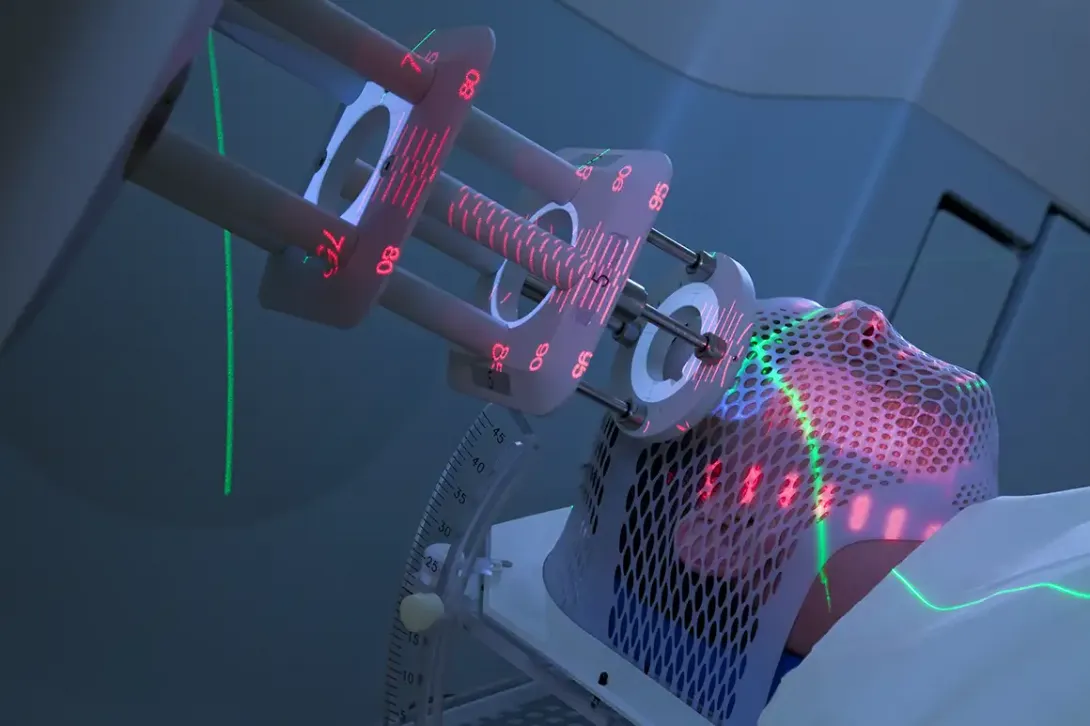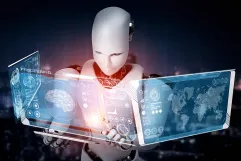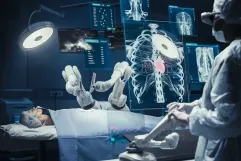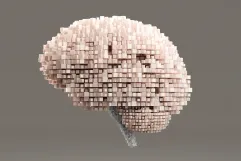
Precision medicine
The benefits of AI impact on many of the medicine sector’s work processes, ensuring that human needs are satisfied and that they operate with transparency at all times.
About ten years ago, Ignacio Medrano was a young neurologist who, while working at the hospital, could already realise that artificial intelligence was about to materialise in his area of work. It was then that he began to imagine a project that would end up materialising with Savana, the company he co-founded with the intention of bringing AI to medicine. “We wanted to use data and computational mathematics to gain a better understanding of diseases, both descriptively, i.e. about the present, and predictively, i.e. about the future,” he says.
His goal was, first of all, to have large amounts of well-ordered and “clean” data - “Big data should be clean data”, he says - to develop a clinical AI, which the doctor could ask questions about, for instance, the response to a certain drug in a group of patients. In his opinion, “the change that this implies is huge”. Although it may still be slow, it will clearly shake up the inertia of healthcare systems: “We are moving towards precision medicine, where we will be able to specify which drug, and at what exact dose, is needed for a given genome.
Towards a predictive model
Soon, AI is expected to begin to radically transform some specialties, such as radiology. Josep Munuera, director of Radiodiagnostics at the Hospital de Sant Pau, agrees with Medrano that to achieve this, “it is essential to digitalise the data, as it has been the case with medical imaging for more than a decade”. Later on, Munuera hopes that “AI will be applied to other fields, such as clinical history or pathological anatomy. Undoubtedly,” he adds, “it will help automate processes and standardise the way we work. And it will contribute decisively to making more rigorous and informed decisions.
This will even make it possible to anticipate the patient’s possible illnesses, a scenario that is not without some moral doubts. As Julio Mayol, Professor of Surgery and Head of Surgery at the Hospital Clínico San Carlos in Madrid, points out, “the possibility of predicting a disease has tremendous social and ethical implications”. Faced with the inevitable fact that “technology will end up completely changing the way the healthcare model is organised”, Mayol proposes “a great social alliance of professionals and the healthcare system itself to commit to the appropriate and constructive use of AI”, always to benefit patients.
Accelerating knowledge
It will also be “a powerful vehicle for accelerating research, in fields such as rare diseases, or for designing new types of drugs, thanks to the capacity of technological engines to exploit and analyse data and obtain different results to those we have had until now”, says Josep Munuera.



